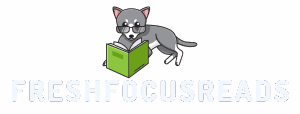In a world where technology and education collide, ChatGPT has emerged as a double-edged sword. Students are discovering that this AI marvel can whip up essays faster than they can say “procrastination.” But how many of them are actually using it to cheat? It’s like asking how many people sneak a slice of cake when no one’s watching—everyone knows it happens, but the numbers might surprise you.
As academic integrity faces a new challenge, the question isn’t just about how many students are using ChatGPT to cut corners, but also why they feel the need to do so. With the pressure to excel mounting, it’s no wonder some students are turning to AI for a little help. Buckle up as we dive into the intriguing world of AI-assisted academia and uncover the truth behind this modern-day dilemma.
Table of Contents
ToggleOverview Of ChatGPT Usage Among Students
ChatGPT has emerged as a tool in educational contexts, resonating with students seeking academic support. Understanding its implications requires an exploration of its definition and the current popularity among learners.
Definition Of ChatGPT
ChatGPT is an advanced language model developed by OpenAI. It generates human-like text based on prompts provided by users. Primarily, this AI assists with writing tasks, answering questions, and providing explanations. With its capacity for conversational engagement, it serves both educational purposes and casual inquiries. As a resource, it attracts various users, including students aiming to enhance their learning experience.
Popularity Of ChatGPT In Education
Increasing numbers of students utilize ChatGPT across diverse academic settings. Research indicates that around 26% of students reported using AI tools for academic assistance. This surge relates to the demand for instant help with assignments, revision materials, and study resources. Educational institutions observe mixed reactions; some embrace AI as a learning aid, while others express concern about academic integrity. Usage trends fluctuate, with students citing efficiency and convenience as driving factors.
The Cheating Dilemma

Concerns about cheating in education continue to rise with the increasing access to AI tools like ChatGPT. Students often turn to these resources due to perceived pressures to perform well.
Academic Integrity Concerns
Academic integrity suffers as students use ChatGPT to gain an unfair advantage. Many educational institutions emphasize honesty and fairness in scholarship. When students rely on AI-generated content, they undermine these principles. This jeopardizes their learning experience and devalues genuine efforts. Educational leaders worry that normalization of AI use for cheating could lead to long-term consequences in students’ ethical development. Additionally, some faculty members struggle to adapt assessment methods that discourage reliance on AI tools. Addressing these concerns requires collaborative strategies from both educators and students.
Statistics On Cheating
Recent data reveals that approximately 26% of students report using ChatGPT for academic assignments. This statistic indicates a significant portion of the student population exploring AI assistance. Cheating isn’t limited to any specific subject; it spans various disciplines from humanities to sciences. Reports show that students frequently seek out AI help for essays, problem sets, and exam preparations. Educational institutions face challenges in tracking the extent of these practices. Awareness programs and policy adjustments emerge as essential steps to combat this trend.
Research Findings
Research reveals significant insights into the usage of ChatGPT among students in educational settings. Various studies and surveys illustrate how this AI tool is influencing academic integrity.
Surveys And Studies
Recent surveys indicate that approximately 26% of students admit to using ChatGPT for academic assistance. Research from multiple universities shows increased reliance on the AI for tasks like essay writing and exam prep. A study conducted by the National Education Association highlights that students view ChatGPT as a valuable resource for enhancing their understanding of complex subjects. These findings underscore the need for educators to adapt to the evolving landscape of educational support and address concerns related to academic dishonesty.
Trends In Student Behavior
Student behavior trends reflect a growing reliance on technology for academic success. Many students report feeling pressured to excel, prompting them to seek shortcuts such as AI tools. Observations indicate that students often use ChatGPT for help with assignments in various disciplines. Furthermore, academic pressure contributes to an environment where relying on AI-generated content becomes more commonplace. This trend raises critical questions about the future of academic integrity and the potential impact on students’ learning experiences.
Implications For Educators
Educators face urgent challenges regarding academic integrity in light of rising ChatGPT use among students. Addressing these challenges requires effective strategies and a shift in pedagogical approaches.
Strategies To Address Cheating
Implementing honor codes can foster a culture of honesty within academic institutions. Promoting discussions about ethics helps students understand the implications of academic dishonesty. Utilizing technology that detects AI-generated content supports educators in identifying cheating. Providing clear guidelines on acceptable use of AI tools ensures students know boundaries. Encouraging collaboration on assignments reduces the temptation to cheat by fostering a supportive learning environment.
Incorporating AI In Learning
Integrating AI tools in the classroom enhances the educational experience for students. Training educators to use ChatGPT as a learning resource can transform challenges into opportunities. Developing assignments that require critical thinking encourages students to engage beyond basic responses. Assigning projects that utilize AI technologies promotes hands-on experience with emerging tools. Encouraging exploration of AI-generated resources helps students discern quality information and strengthens their analytical skills.
The rise of ChatGPT in educational settings presents both opportunities and challenges. While it offers students a valuable resource for enhancing their learning, it also raises serious concerns about academic integrity. The significant percentage of students using AI for assistance highlights a growing reliance on technology as a shortcut for academic success.
To address these challenges, educational institutions must adapt their approaches. By fostering a culture of honesty and integrating AI thoughtfully into the curriculum, they can mitigate the risks of cheating. Ultimately, the goal should be to encourage authentic learning experiences while navigating the complexities introduced by AI tools like ChatGPT.

